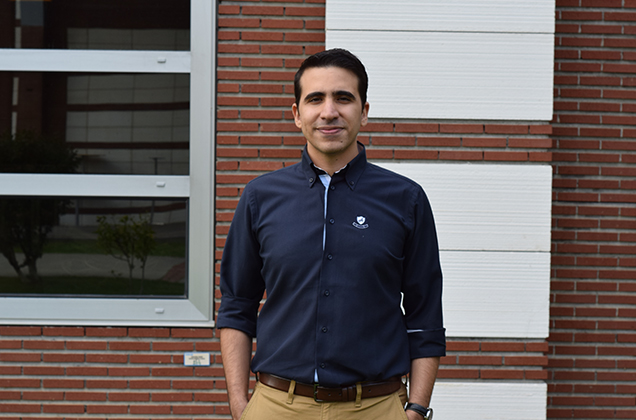19/12/2018
Sabancı University Faculty of Engineering and Natural Sciences Member Ogün Adebali won an Installation Grant from the European Molecular Biology Organisation (EMBO).

The EMBO Installation Grant was founded under the leadership of Turkey as the EMBO Strategic Development Installation Support in 2006. The program was founded to reverse intellectual migration in EMBC (European Molecular Biology Conference) member states Turkey, Czech Republic, Estonia, Lithuania, Poland and Portugal, where molecular biology-based life sciences are in development. EMBO Installation Grants are funded by TÜBİTAK in Turkey and the respective funding institutions of the other nations.
EMBO has supported 78 group leaders through Installation Grants since 2006, and the 2018 grantees were from EMBC members Czech Republic, Portugal, Poland, and Turkey.
Sabancı University Faculty of Engineering and Natural Sciences Member Ogün Adebali received the EMBO Installation Grant on the basis of scientific excellence and international mobility for his project that aims to investigate the evolutional past of the GPCR protein family, which plays a significant role in pharmacology, oncology and genetic diseases, to understand the amino acid-level functions of proteins, their importance, and their connection with diseases.
Commenting on the 2018 Installation Grants, EMBO Director Maria Leptin said: “We’re pleased to welcome these ten talented life scientists to the EMBO community. They have all shown that they are able to carry out research of the highest quality, and we look forward to supporting them in taking the next step in their careers and setting up their own research groups.”
150,000 Euros in total research support
Ogün Adebali will receive 50,000 euros annually from TÜBİTAK for a period of three years, and in addition to financial support, he will receive networking opportunities and practical support by becoming part of the EMBO Young Investigator network.
Ogün Adebali will use his grant to build a computational genomics lab at Sabancı University, where he will implement projects with master's and PhD students as well as postdoctoral researchers to contribute directly to medical sciences.




